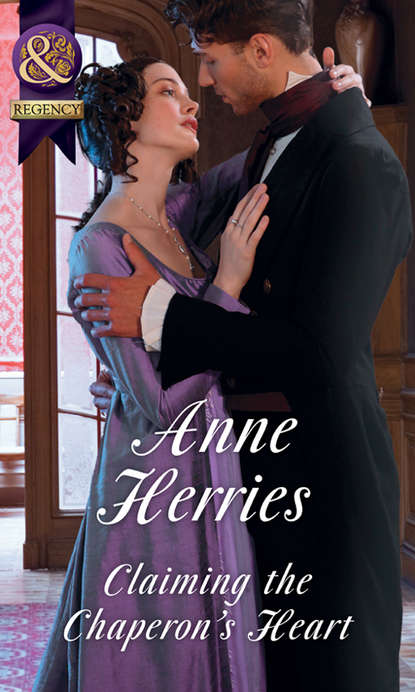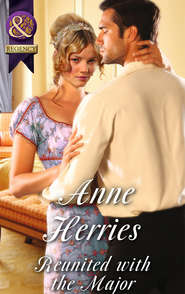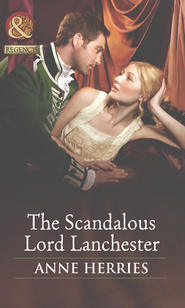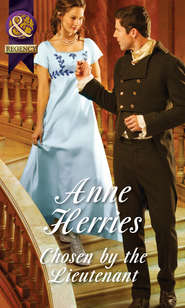По всем вопросам обращайтесь на: info@litportal.ru
(©) 2003-2025.
✖
Claiming The Chaperon's Heart
Настройки чтения
Размер шрифта
Высота строк
Поля
Some years had passed since Paul had met Lady Moira. He’d been seventeen then and it had been just before his mother died of grief over her husband’s infidelity, and the terrible quarrel that caused him to leave home and become an officer in the Guards. Fortunately, he’d had some small fortune left him by his maternal grandmother and when his own father cut him off without a penny was able to survive on his pay as an officer and his allowance from the inheritance. Later, he’d won prize money and honours and life had become much easier when an uncle left him a small fortune.
Paul knew that his father had bequeathed everything that was not entailed to his half-brother. He minded that not at all, and would have been glad to pass the rest of it over had he been sure he did not wish to live in England, but some small perverse part of him clung to what his father had been forced to leave him. How it must have gone against the grain with Lord Frant to know that the son of the wife he’d married for her dowry would have his title.
Paul would have freely admitted that the woman his father had taken in his mother’s place was beautiful. Goodness knew, his own mother had been far from a beauty, but she had a beautiful nature, gentle and loving—and her heart had been broken by her husband’s cold indifference.
Watching his mother fade, become frailer and sadder, had broken the young Paul’s heart and after her death he’d railed at his father for his cruelty.
‘I never loved her,’ his father had told him bluntly. ‘I needed her money to restore my estates—but it was not the fortune I’d been led to believe. A paltry twenty thousand...’
‘Twenty thousand would have been a fortune to many,’ Paul said. ‘If you’d put it to good use instead of wasting it on gambling and women...’
‘Your mother came from trade and it has not yet been bred out of you,’ his father sneered. ‘Had I known I should get no more when the old man died I’d never have taken the silly bitch.’
Paul had tried to knock him down then, but his father was a strong bull of a man and he’d sent the youth flying. Even so, Paul had tried again and again, until his face was cut and bleeding and he could not rise.
‘Well, you can take yourself off where you came from,’ his father said. ‘Go back to the mills and dens of the North and stay where you belong...’
His taunt was a cheap one, for though his maternal grandfather’s wealth had come from the mills of the North, they had been sold two generations back and the money invested in land. However, the Martins were better mill owners than farmers and much of their former wealth had been badly invested. Paul had received a bequest of ten thousand pounds on his grandfather’s death, and was the owner of several hundred acres of farmland, but had the family still owned the mills they would have been worth more.
Lord Frant had inherited the ten thousand that would have come to his wife on her father’s death, but thought nothing of the sum and promptly lost it in a week of frantic gambling at the tables.
Paul had known nothing of this or his own inheritance for some years, by which time he was well on the way to making his own fortune. Now, on the verge of entering the house that had been his father’s, he felt chilled. Standing in the dark, unwelcoming hall, he thought of turning tail and finding accommodation in a hotel, but pride would not let him.
‘Welcome home, my lord. It’s good to see you back.’
Paul looked hard at the black-clothed footman who had opened the door to them and his brow wrinkled in concentration. ‘Is it Matthews?’ he asked at last and saw the smile on the man’s face.
‘Yes, my lord,’ he said. ‘I worked as a boot boy when you were a lad, sir, then as a man of all work. I was made up to footman six years back.’
‘Were you now?’ Paul nodded, looking him over. He glanced about him. ‘I seem to remember this hall looked different when I last stayed here.’
The smile left Matthews’s face. ‘Yes, sir. I regret to say that his late lordship sold much of the furniture and the paintings last year.’
‘In debt again, I suppose,’ Paul said and sighed. ‘Has he left me anything worth having?’
‘Not much, my lord,’ the footman replied. ‘The bedrooms are mostly the same but the silver, pictures and some porcelain pieces have been sold. Your mother’s rooms were stripped bare years ago...’ Matthews looked awkward. ‘Thought you should know, sir.’
‘Well, what are a few bits and pieces?’ Paul said and laughed ruefully as he turned to his companion. ‘I’m sorry to bring you to such a place, Adam—but I dare say we’ve a bed to offer and, I hope, some food.’
‘Oh, yes, sir. Your instructions have been followed. A new housekeeper and cook were hired and the rooms opened up and cleaned. Mrs Brooks says she’s made one room look proper for you, sir; it used to be her ladyship’s sitting room...that is to say your mother’s room, my lord. I believe a fire has been lit there for you...’
‘Thank goodness someone has some sense,’ Paul said as he led the way through to a room he knew well. Matthews was directing two other footmen to carry his bags upstairs, and a woman had appeared from the room at the far end of the hall. She hurried forward, seeming flustered.
‘We were not sure when to expect you, sir.’
‘I think we should like some wine and a light meal in the green room, Mrs Brooks.’
‘Yes, my lord. I understood it was the room you favoured as a lad—and the other room usable is what was known as the library, sir.’
‘Don’t tell me the books have been sold?’
‘Some of them, sir. However, it is quite comfortable—until your lordship decides what to do about refurbishing the other rooms...’
Paul gave a wry laugh. The Frant library had contained some rare books and the loss of those meant more to him than any silver or paintings, but he could not do anything about that loss. His father had sold everything he could without actually breaking the entail, and he supposed he ought to have expected it. Had he come home with only a few guineas in his pocket he would have been in trouble, but as it was he could afford to smile at the pettiness of the man he’d called Father.
At least his mother’s room was comfortable, though not as he’d remembered it. Nothing of hers remained, but everything decent in the house must have been placed here and the comfortable wing chairs by the fire were more than adequate, as was the mahogany desk and elbow chair, the large settee and the sideboard on which some fine glasses and decanters stood waiting.
‘At least it seems I have some wine to offer you,’ Paul said, casting an eye over the contents. ‘Brandy, Madeira or Burgundy?’
‘A glass of Madeira, please,’ Adam said and stretched out in one of the chairs. ‘Well, you’ll be busy now, my friend, though I do not envy you the task. Buying furnishings is not my idea of amusement.’
‘Nor mine,’ Paul said and laughed. ‘I imagine I can find someone to do it for me.’
‘Know what you need?’
‘No. What?’ Paul asked with his lazy smile.
‘What you need, my friend, is a wife,’ Adam said, a faint challenge in his eyes. ‘Just the thing for making a man’s house look comfortable. I’m thinking of getting one myself now I’ve given up adventuring—and if I were you I should do the same...’
‘It’s odd that you should say it,’ Paul said thoughtfully. ‘I have been wondering if perhaps I ought not to offer her marriage—Bellingham’s girl, you know. I’m damned if I wanted her father’s estate, but perhaps I ought to offer her a home. I could only do that if I married her...’
‘I should think about it for a while if I were you,’ Adam advised. ‘You haven’t seen her yet—and she is a little young for you, is she not?’
‘You are quite right, which is why my words were mere idle speculation. No, I shall not marry unless I find the right woman...’
‘You at least do not need to look for a fortune,’ Adam said and there was the faintest trace of envy in his voice. ‘You have more than enough for any man.’
‘Yes, I have been lucky,’ Paul agreed, ‘but it was honestly earned—and I have not yet decided where to settle...’
‘You won’t return to India?’
‘I do not know.’ Paul sighed. ‘It has been my home for several years—I am not sure there is anything to keep me here. You came home to settle your affairs, Adam—shall you return after you have done so?’
‘I am in two minds,’ Adam said and his eyes stared at a point beyond Paul’s shoulder. ‘It depends on many things. Not least whether I have sufficient funds to live decently here...’
‘Surely your father has not left anything away from you? You were his only son.’
‘No, but the question is—has he actually left me anything but debts?’ Adam asked wryly. ‘I did not earn a fortune out there as you did, Paul—and, for all I know, I may be a pauper...’
Chapter Three (#ulink_6519764c-a8d6-5e84-bc72-bc93d2c1a515)
‘This is so very kind of you,’ Melia cried, looking round the pretty bedroom with delight. ‘My aunt is very good to me, but, poor dear, she could hardly be expected to bring me to town. Such a delightful room...’
‘My brother was concerned that you should have the best guest room, Miss Bellingham,’ Jane said, smiling at the girl’s pleasure. ‘It is a lovely room. I have stayed here myself many times in the past.’
‘Oh, you should not have given me your room,’ Melia said. ‘I do not wish to put you out, dear Lady March.’
‘No, you have not,’ Jane said, shaking her head. ‘This was my room as a girl, but now I have a permanent suite of three rooms at the other side of the house. At least, it has been mine since...for a while now. Of course, when my brother marries I shall take a house of my own. I am thinking of making my home in Bath.’











